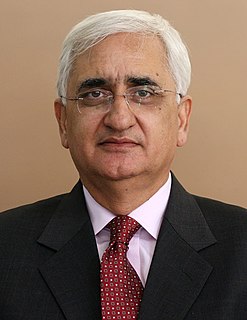Top 1200 Governments Quotes & Sayings - Page 2
Explore popular Governments quotes.
Last updated on April 21, 2025.
The continuation of authority has frequently proved the undoing of democratic governments. Repeated elections are essential to the system of popular governments, because there is nothing so dangerous as to suffer power to be vested for a long time in one citizen. The people become accustomed to obeying him, and he becomes accustomed to commanding, hence the origin of usurpation and tyranny.
As I write in 2012 we certainly do not believe that it is over yet, and the worst may be yet to come. Efforts by governments to solve the underlying problems responsible for the crisis have still not gotten very far, and the 'stress tests' that governments have used to encourage optimism about our financial institutions were of questionable thoroughness.
In human rights theory it is very important that governments still have the primary responsibility for the standards and provision of such services even if they no longer deliver them. They must insist that the private sector delivers without discrimination. So governments still have responsibility, including the need to influence business.
We may please ourselves with the prospect of free and popular governments. But there is great danger that those governments will not make us happy. God grant they may. But I fear that in every assembly, members will obtain an influence by noise, not sense. By meanness, not greatness. By ignorance, not learning. By contracted hearts, not large souls.
Governments can can send inspectors to companies. Governments can put legal requirements in place to disclose information that consumers and workers and other interested people need. Non-governmental organizations don't have that legal power and to me, that's what imposes substantial limitiations on how far we can go with trying to keep corporations accountable though non-governmental measures.
I used to be a computer engineer, and I can make really good code, and we can make systems that work really well, and we can make the application a great experience, but when you have to translate bits to atoms, you need folks who are used to working with city governments, with state governments, and so I like to say we're in a political campaign.
Nothing is more deceptive or more dangerous than the pretence of a desire to simplify government. The simplest governments are despotisms; the next simplest, limited monarchies; but all republics, all governments of law, must impose numerous limitations and qualifications of authority, and give many positive and many qualified rights.
This spirit of freedom is expanding even where it must struggle against the external obstacles of governments that misunderstand their own function. Such governments are illuminated by the example that the existence of freedom need not give cause for the least concern regarding public order and harmony in the commonwealth. If only they refrain from inventing artifices to keep themselves in it, men will gradually raise themselves from barbarism.
Government is best which is closest to the people. Yet that belief is betrayed by those State and local officials who engage in denying the right of citizens to vote. Their actions serve
only to assure that their State governments and local governments shall be remote from the people, least representative of the people's will and least responsive to the people's wishes.
Even if we give first priority to the destruction of terrorist networks, and even if we succeed, there are still governments that could bring us great harm. And there is a clear case that one of these governments in particular represents a virulent threat in a class by itself: Iraq. As far as I am concerned, a final reckoning with that government should be on the table.
I would have government defend the life and property of all citizens equally; protect all willing exchange; suppress and penalize all fraud, all misrepresentation, all violence, all predatory practices; invoke a common justice under law; and keep the records incidental to these functions. Even this is a bigger assignment than governments, generally, have proven capable of. Let governments do these things and do them well. Leave all else to men in free and creative effort.
There is an opinion that parties in free countries are useful checks upon the administration of the government, and serve to keep alive the spirit of liberty. This, within certain limits, is probably true, and, in governments of a monarchical cast, patriotism may look with indulgence, if not with favor, upon the spirit of party. But in those of the popular character, in governments purely elective, it is a spirit not to be encouraged.
If terror groups are to be defeated, it is national governments that will have to do so. In nations like India, governments will have to call on the patriotism of citizens to fight the terrorists. In a nation like Pakistan, the government will have to be persuaded to deal with those in their midst who are complicit.
Military and absolutist regimes are undoubtedly well fitted to get the jump on an unsuspecting or unprepared enemy; but the history of modern warfare proves that they cannot win over representative governments in the long run, provided that people behind those governments have the heart to sustain initial punishment, and both the will and the resources to fight back.
The Constitution does not protect the sovereignty of States for the benefit of the States or state governments as abstract political entities, or even for the benefit of the public officials governing the States. To the contrary, the Constitution divides authority between federal and state governments for the protection of individuals.
Here we have the heart of the difference between Hayek and Keynes: one knew that markets work to give us the best of all possible worlds, while governments create and exacerbate malfunctions; the other imagined that governments were somehow capable of both perceiving and correcting malfunctions by means of the printing press, provided the right technocrats are in charge.
We know that dictators are quick to choose aggression, while free nations strive to resolve differences in peace. We know that oppressive governments support terror, while free governments fight the terrorists in their midst. We know that free peoples embrace progress and life, instead of becoming the recruits for murderous ideologies.
Look, you are interested in trying to make sure that governments keep a clean environment, have regard for the lifestyles of indigenous peoples, and work for fair trade rules. Well, it's exactly the same for human rights - from non-discrimination to the basic rights to food, safe water, education and health care. We are talking rights not needs. There are standards that governments have signed up to - but nobody is holding them to account.
Citizens as conceived by governments are persons who admire the status quo and are prepared to exert themselves for its preservation. Oddly enough, while all governments aim at producing men of this type to the exclusion of all other types, their heroes in the past are of exactly the sort that they aim at preventing in the present. Americans admire George Washington and Jefferson, but imprison those who share their political opinions.
Europeans tend to feel more positively about their governments than do Americans, for whom the failures and unpopularity of their federal, state, and local politicians are a commonplace. Yet Americans' various governments collect taxes and, in return, provide services without which they could not easily live their lives.
Who can dispute that the governments of the United States constitute the most voracious tax system in the history of mankind? In the year 2000, those governments succeeded in laying hands on more than $3 trillion - almost $11,000 each for the 275 million men, women, and children resident in the country. No other nation-state rakes in an amount even close to the U.S. total.
One by one, these governments came undone, and were forced into IMF tutelage (and national illegitimacy) by the careening oil prices, the debt imbroglio, and falling terms of trade. The last of these governments to fall were the Communist regimes of eastern Europe, which have now gone the way of other Third World countries. The second in the cascade of bifurcations is thus symbolized by 1989.
You have countries that have lived beyond their means, with bloated governments, huge trade deficits, and people living off the government. Then you have others where poor people are working hard and underconsuming and their governments are buying all this debt and propping up the extravagant countries. All of this has to change. There's a tremendous moral hazard involved with this system.
Governments and their hired negotiators are designing the supranational rules and pressing for their adoption and for compliance - and the US government first and foremost. These governments are elected by us, funded by us, acting on our behalf, sensitive to our will, and so, we are not mere bystanders observing the injustice.
We would love to see Canadian federal and provincial governments establish a new business entity class like the CIC or L3C for social enterprises. Our governments should also offer tax incentives to entice more entrepreneurs into the social economy, and encourage foundations and impact investors to put their capital into social enterprises.
We need to be prepared to have multi-stakeholder, well-managed partnerships. That can be very effective. We saw this happen at international level with the UN Convention on Landmines, for example, where some governments didn't want to go forward, but enough governments did and with them many NGOs. At international level we need to see this as the 21st century way of doing things.
Social media is important, but it does not bring down governments. Governments can shut down the Internet. Governments can control media access. If they do what the Tunisians did and try and negotiate with the opposition, then the media's still open, the international community can learn what's happening in the country, and then that can provide inspiration. But in mid-2009, the Iranian regime just shut down the Internet. Facebook went dark. Twitter went dark. BBC Persian, Voice of America, Persian News Network all went dark. That was it.
Governments follow their people. A great deal has to do with the vision of the leadership of governments. They have a vision, and they translate that to their people and to their counterparts in other countries. You can fulfill and achieve a great deal if you get along well as individuals, as people, as persons.
























































